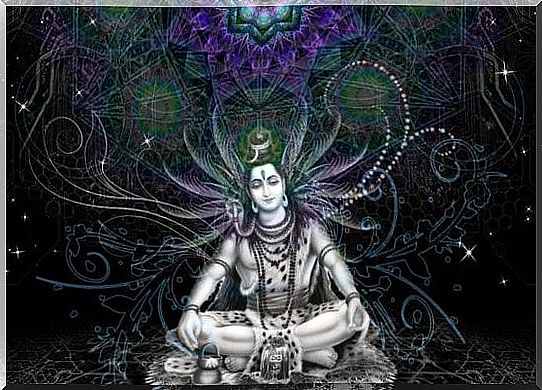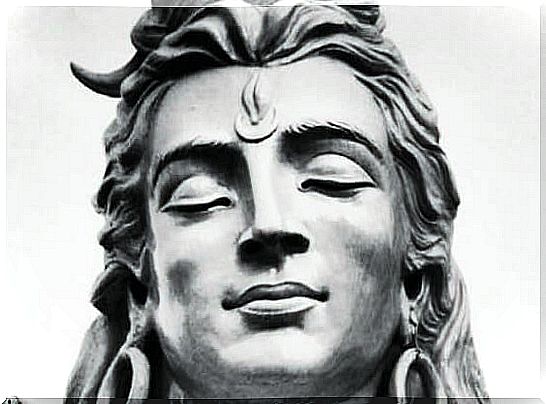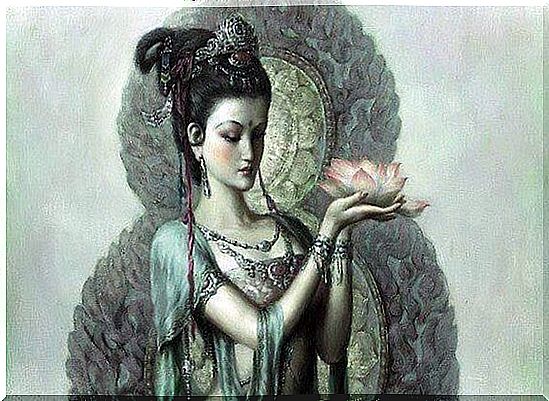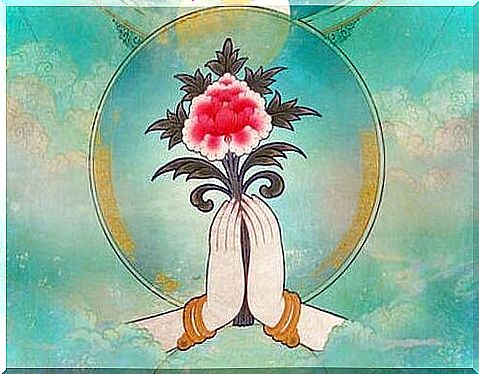7 Steps To Happiness According To Hinduism

A Hindu legend tells the story of the only lucky man in an ancient kingdom and the 7 steps to happiness. There were many rich people there, but they could not enjoy their possessions. They always wanted more and so they spent most of their time doing business to increase their wealth. There were also other persons, but they were very poor. They were not happy either, because they spent a large part of their lives dreaming about everything they did not have.
When word spread that there was a man who was perfectly happy, everyone showed a great deal of interest. It was said that this man had a chest that contained all the secrets for achieving happiness. The rich went to him and wanted to buy the chest, but the man did not sell it. The poor begged him, but still the man did not give in. They even tried to steal the chest, but failed.
After a while a boy came to the man with the coffin. He told the man that he wanted to be happy too. Seeing the boy’s innocence, the happy man was moved. He told the boy that happiness is like a ladder and that every step towards happiness was a new learning opportunity. He showed the 7 steps to happiness.
7 steps to happiness
Step 1. Cultivate love for yourself to be happy
The man with the coffin told the boy that the first condition for happiness is to love yourself. Self-love means feeling worthy of happiness. To do this, we must value our lives, take care of our health and physical well-being.

We also need to understand that we are unique in this world. This means that all of our virtues and flaws are the result of a unique history in the universe. We are no more and no less than anyone else, we are simply the effect of millions of unrepeatable choices.
Step 2. Acting, putting it into practice
One of the things that makes people unhappy is thinking about being the best or having a better life, but let it go in your mind. This only leads to frustration and guilt. If you think you can or should do something, just do it. You don’t have to think about it too much.
It is also important that your actions match your words. And of course with your thoughts. If you think one way but act differently, you only create confusion. But if there is harmony in your inner world, everything will go smoothly.
Step 3. Banish jealousy
Those who think of the achievements of others rather than their own build a path to bitterness. You never know what that other person did or went through to get what they have now. So you are not the right person to judge whether he deserves this or not.
Instead of thinking about what others do or don’t achieve, focus on yourself. If you give room in your heart for jealousy, you will suffer. This kind of suffering is useless and destructive. If you manage to be happy with what others achieve, your happiness will be twice as great and you will have more strength in your heart to achieve your goals.
Step 4. Fight resentment
Sometimes we get insulted in a really nasty way that leaves the pain in our hearts. Over time, this pain will turn into frustration and this will be transformed into anger. Eventually you will carry a very negative feeling that paralyzes you.

Resentment is also one of those useless passions that do a lot of harm to those who feel it. Life has its own logic and that is why when you insult it, you must remember that whoever does it will get justice. Sooner or later everyone will reap what they sow. This is why you must strive to forgive, forget and let go.
Step 5. Don’t take anything that doesn’t belong to you
According to Hinduism, anything that is unjustly taken from others has serious consequences. In time, the one who committed this act will be stripped of something of much greater value. Not respecting the property of others makes what you get disappear.
This does not only apply to tangible properties. It is also about usurping ideas, affections or benefits that are not yours. For Hindus, the lack of respect for things that do not belong to you is the beginning of one’s moral and material destruction.
Step 6. Ban abuse from your life
No living being should be mistreated. This concerns people, but of course also plants and animals. Whoever manages to establish relationships in a loving way will be able to be happy. All living things are a source of joy and well-being, so they should be appreciated.
This obviously means a radical refusal to be mistreated. It’s good to be steadfast in rejecting any situation or person you mistreat. No form of abuse is “in your own interest” or good for the good of others. In order to grow or to correct mistakes, it is not necessary to make destructive agreements.
Step 7. Be grateful every day of your life
It is very simple and has a very powerful effect on your emotions. Every day you undoubtedly have reasons to be grateful. If you make it a habit that the first word of your day is “thank you,” you will see how your life fills with color.

This simple ritual changes lives. When this becomes a habit, it puts you in a position of goodness and good disposition towards everything. It makes you a happier and more generous person. Moreover, it allows you to better understand the value of your life.
We have already mentioned that the 7 steps to happiness are like a ladder. You reach one step after another. They are an evolutionary process that leads to inner peace, and this peace is the only necessary condition for happiness. And when you are happy, you reach a state where all the vicissitudes of life are accepted with generosity and intelligence.









